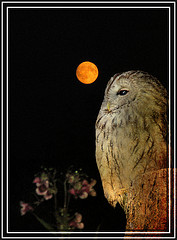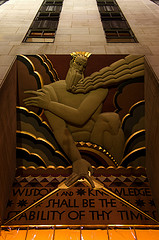by Al Watts and Lola Fredrickson
Who’s the wisest person you know? Why does that person come to mind, and what are some characteristics of other wise people you know?
Competency, skills and expertise are desirable, but cannot take the place of wisdom. There are competent, highly skilled and even expert sailors, for example, but not all of them are wise. A saying among Lake Superior sailors comes to mind: “The Superior sailor uses superior judgment to avoid situations that require superior skills.” For examples closer to home, think of organizations getting bad press lately that have no doubt been run by smart people; if they had exercised more wisdom, they likely would have saved a bundle on legal fees.
As we think of truly wise professionals that we know, here’s what comes to mind:
- It’s not about them; they are relatively ego-less. Whatever the profession, it’s not about proving knowledge, displaying expertise or being right; there is a genuine focus on whomever they are helping and on arriving at the best solutions.
- They do more asking than telling, and ask great questions. They are great listeners. They ask questions that cause us to think, reflect on our goals, diagnose a situation properly and often arrive at the best solutions ourselves.

- They’ve “been there and done that,” usually multiple times under many different conditions and circumstances. An article not long ago described the false confidence that golfers can acquire after a successful afternoon on the driving range or consecutive great rounds at their favorite course. Golf pros, on the other hand, develop a kind of wisdom that comes from hitting many more shots on many different courses, in all weather conditions and circumstances. Wisdom does not come from one year of the same experience ten years in a row.
- They display exceptional discernment and judgment. Discernment precedes good judgment; it is the capacity for keen observation, sensing subtleties, distinguishing true from false, questioning assumptions and evaluating alternatives.
- They see the bigger picture. Amateur chess players typically react to threats or opportunities on a section or two of the game board at a time, and think one or two moves ahead. The wise, like great chess players, can take in a whole picture and its implications all at once. Wise professionals and leaders consider the 2nd, 3rd, 4th-order and beyond likely consequences of decisions and actions. They consider an immediate task or object as well as its context.
- They see the “smaller picture” too. They see not only the bigger picture; they focus on details when appropriate, and distinguish important from unimportant details.
- They don’t always “go by the book.” Perhaps because of the above, they are as or more attuned to the value of exceptions than they are to rules. To paraphrase the jazz great Miles Davis, they “don’t play what’s there; they play what’s not there.” Wisdom comes into play when there isn’t a rule book, manual or “standard operating procedures” to go by.
- They are still learners. Have you noticed how the smartest (at least wisest) people don’t act that way? There’s a kind of humbleness that comes from a mindset of suspecting there is always another answer or way, and perhaps a better one. They have curious, questioning minds – a large part of why they are usually the wisest in a group.
What’s the big deal with wisdom, and why be concerned about it? For one thing, many of our wise human resources are heading out the door from attrition or retirement. “Knowledge management” was a hot topic a while  back, and now “talent management” carries the day. What about “wisdom management?” What are we doing to acquire, cultivate and retain wisdom in our organizations?
back, and now “talent management” carries the day. What about “wisdom management?” What are we doing to acquire, cultivate and retain wisdom in our organizations?
Whether in-house or contracted, wise resources contribute value that is distinct from merely competent or even expert talent. Their depth of experience and personal characteristics bring a different dimension to problem solving. Instead of merely helping solve problems, they help us discern which problems are worth solving or how to avoid them in the first place. Competent, skilled or expert resources can answer our questions; wisdom helps us make sure that we are asking the right questions.
When facing a challenge in your organization, make sure there’s wisdom on your team. Sometimes an outside view helps – fresh eyes that have seen a lot and bring new perspectives, making sure that we’re asking the right questions and solving the right problems. We need to give more thought to the role of wisdom in our work and organizations – when we need it, how to get and grow it, how to leverage it and how to retain it.
In what ways are you wise? What can you do to cultivate your own wisdom?
How can you cultivate, retain and leverage wisdom in your organization?
“The young man knows the rules, but the old man knows the exceptions.”
“Wisdom is the reward you get for a lifetime of listening when you’d have preferred to talk.”

I like moving wisdom beyond competencies and skills. It adds the experience piece in a way that people actually learn and can fill in a more wholistic picture. I also think of wisdom similarly and particularly how it helps people in their use fo self (eg when to do or not, how to manage in a situation, etc).
Thanks, Dave, and I agree that we need to look at the whole picture when judging someone’s capability (including ours!) to deliver. ‘Good point about self-awareness and knowing how to deploy ourselves being components of wisdom.
Great article Al! I love to meet, listen to, and learn from wise people. Your ‘ingredients’ are spot on. When I think of the wise people I know (and the ones I don’t personally know but am just familiar with), these people know how to continuously question their own beliefs and their interpreations in a way that keeps their minds open to radically diferent perspectives without appearing indecisive. They appear self-reliant and at the same time highly collaborative. They seem to have a strong sense of self-awareness and awareness of others and their environment. And they seem to be naturals at integrative thinking, which is so well described by Roger Martin in his book “The Opposable Mind”. I feel rich, every time I have the chance to ask, listen to, and learn from wise people.
Al, thanks for your inspiring and thought-provoking articles, Carolien Moors
Thanks, Carolien; I appreciate your wise observation about the importance of balancing a “knowing” and “not knowing” orientation. Thanks too for the book recommendation, “The Opposable Mind;” I look forward to reading it. That’s a great title; it makes me think of how an “opposable mind” likely helps us evolve intellectually like opposable thumbs contributed to evolution of the human race.